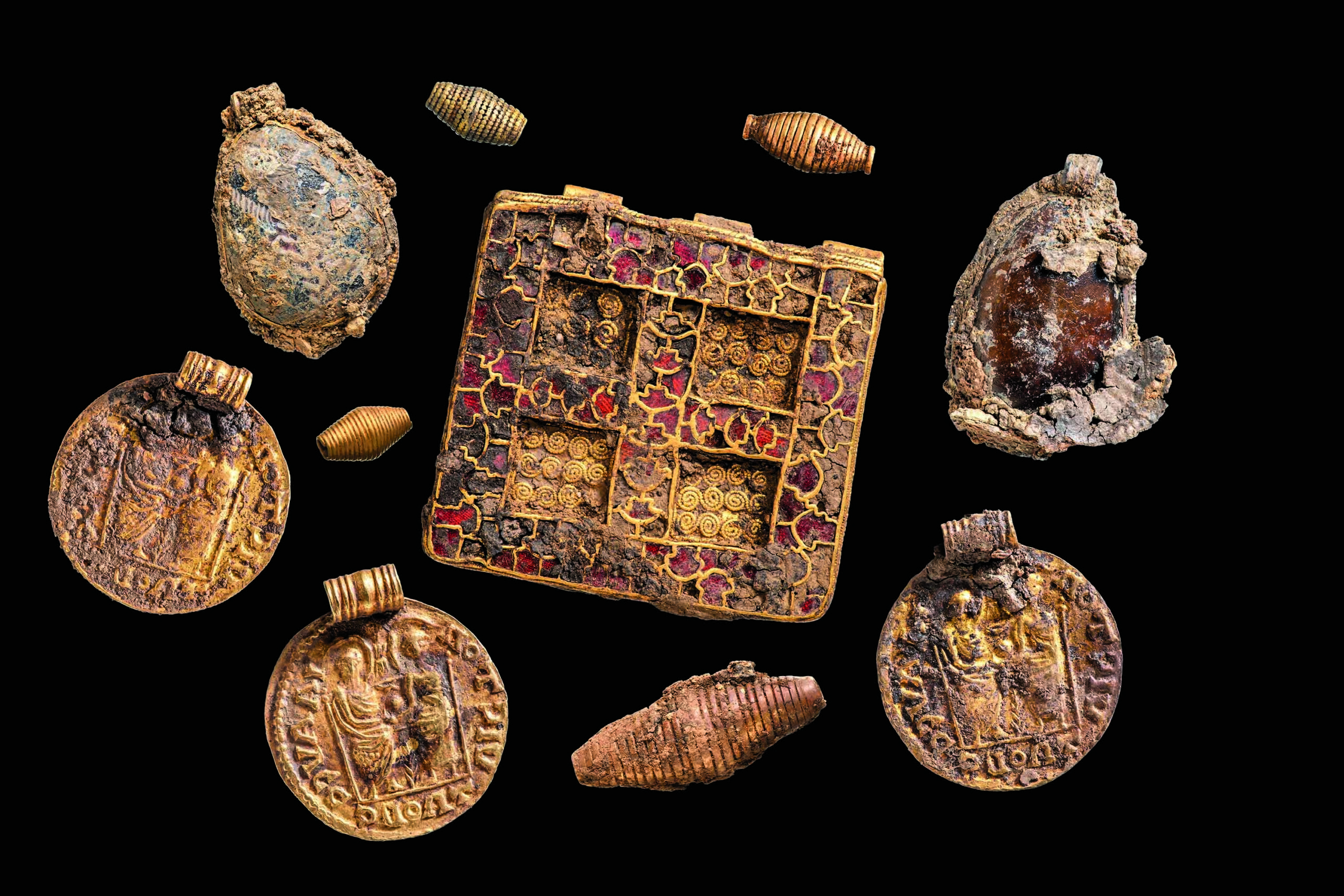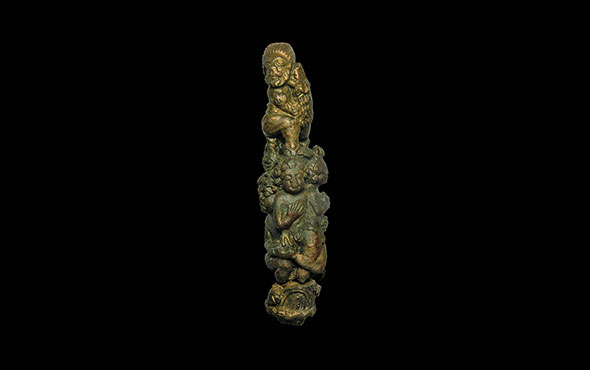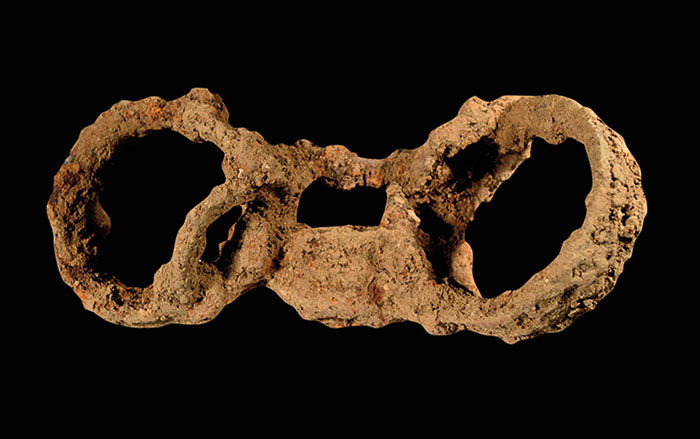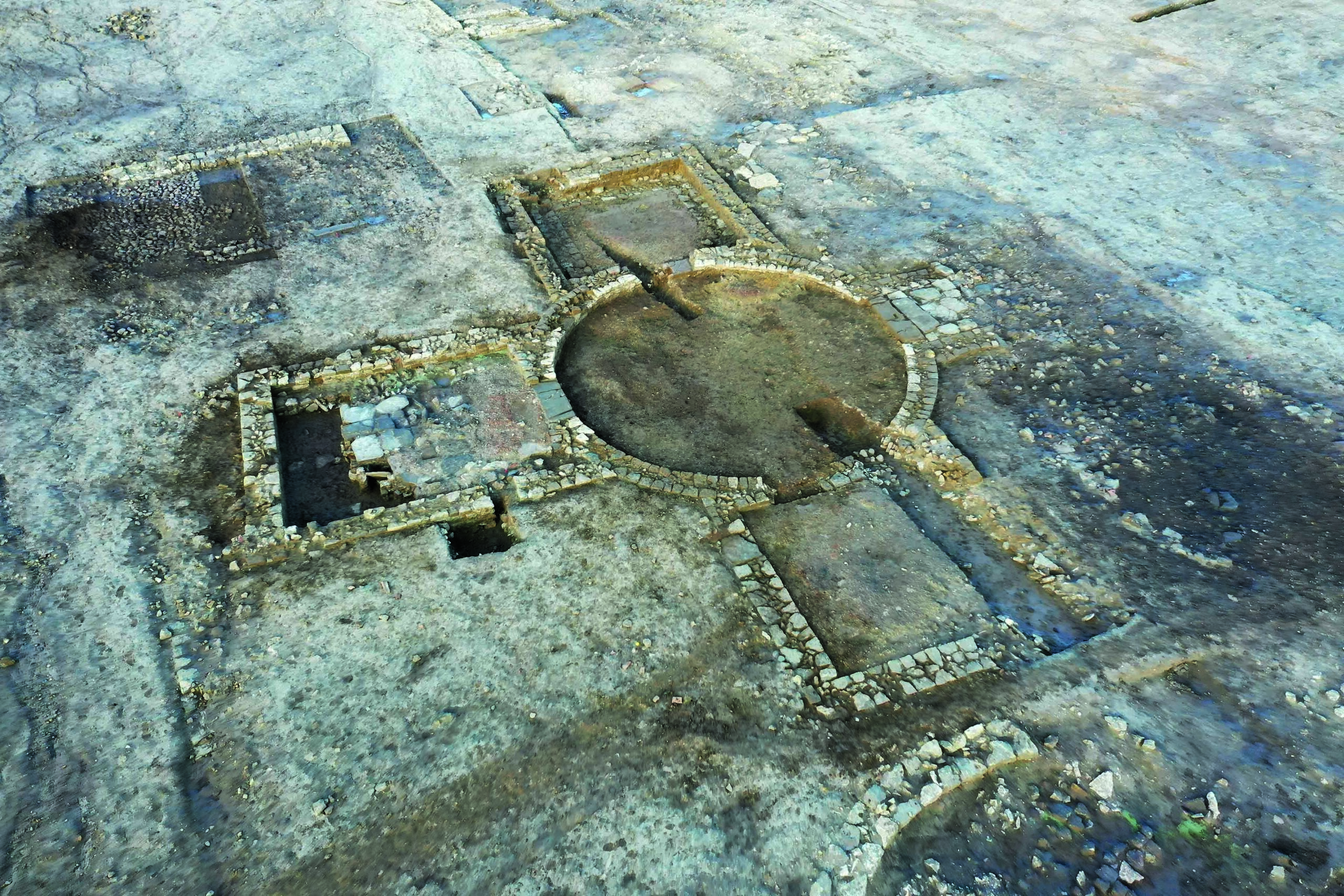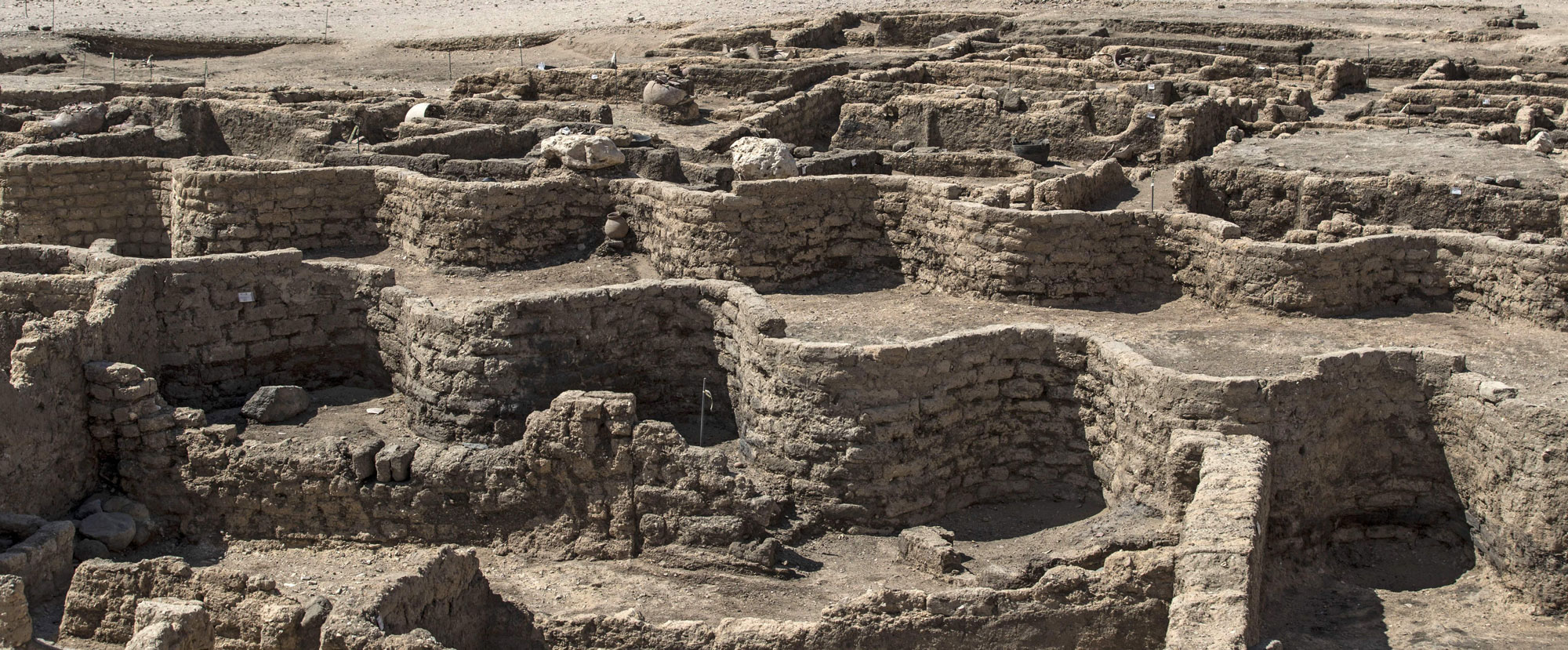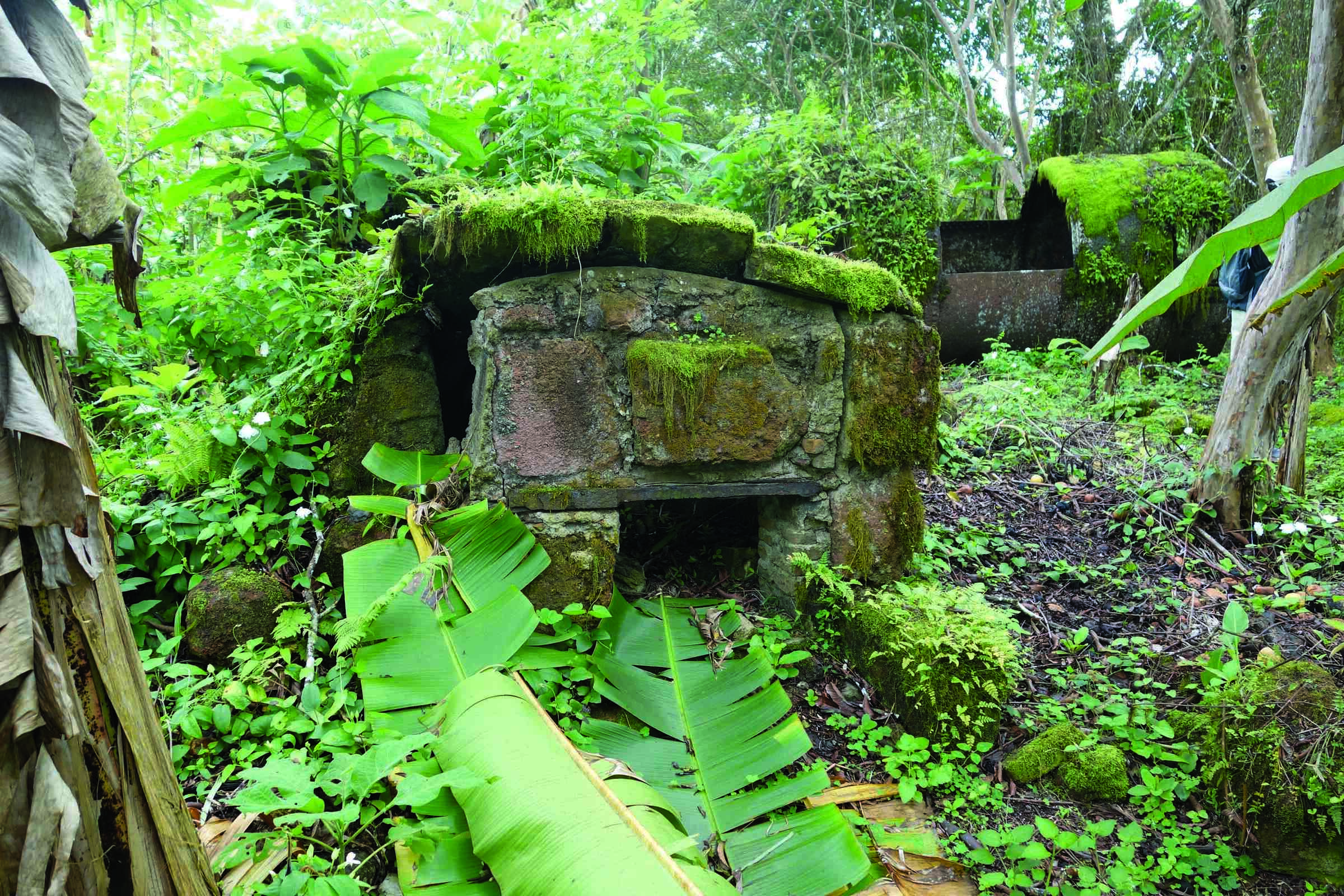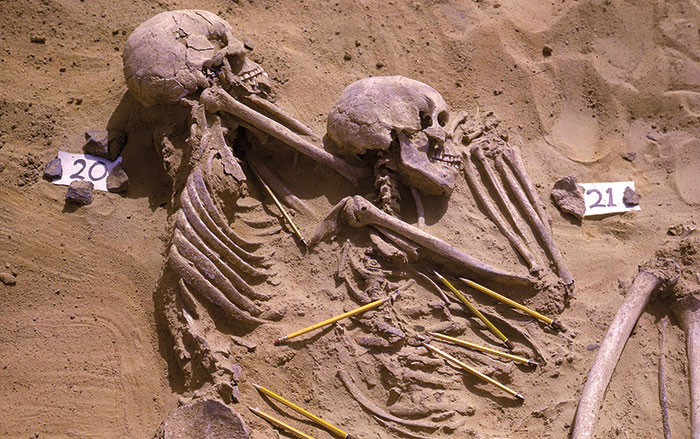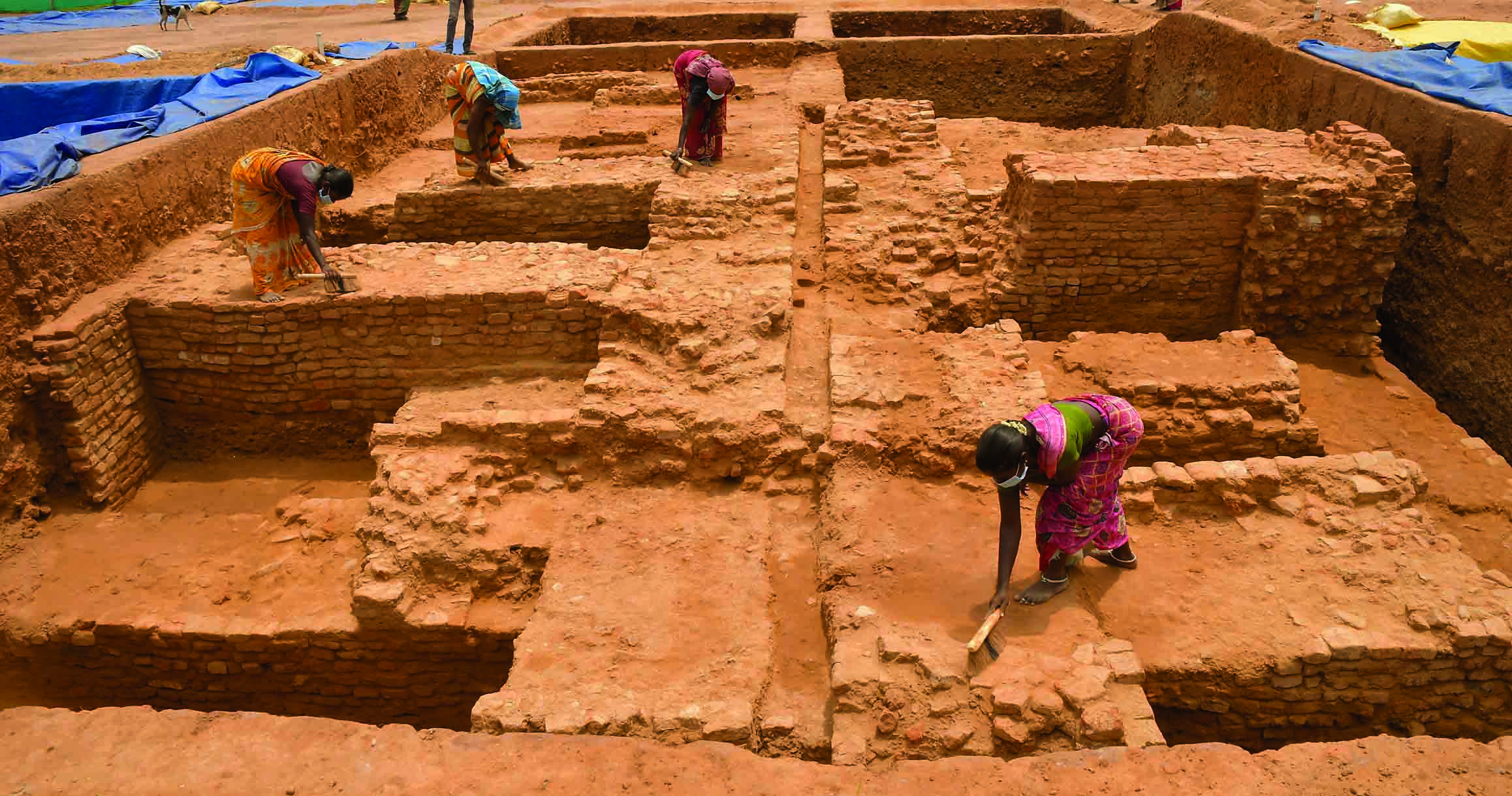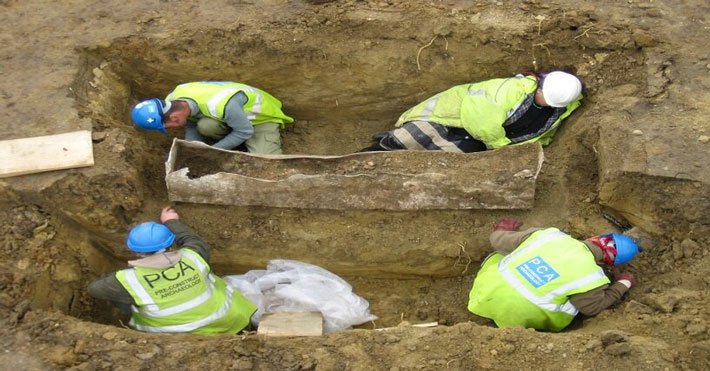
NEWCASTLE UPON TYNE, ENGLAND—According to a statement released by Newcastle University, a team of researchers led by James Gerrard uncovered about 30 pounds of litharge, a material associated with the extraction of silver from other metals, at a small, rural Roman site in southeastern England known as Grange Farm. The amount of litharge indicates that the Romans refined silver at the site on an industrial scale, yet the researchers have not uncovered any evidence of infrastructure to support such a large-scale operation. So far, they have found traces of a rectangular building dated to the late third or early fourth century A.D. Divided into three aisles, the building was likely used as a dwelling and for metalworking on a small scale. The site also yielded a mausoleum with a floor of red mosaic tiles. Inside, Gerrard and his colleagues found a lead-lined coffin holding the remains of an elderly woman. Chemical analysis of her teeth suggests that she had lived locally. Gerrard suggests the rural site’s proximity to the River Medway may have made the export of large amounts of silver possible, perhaps without the knowledge of the Roman state. To read about silver mining in the Roman world, go to "Spain's Silver Boom."


